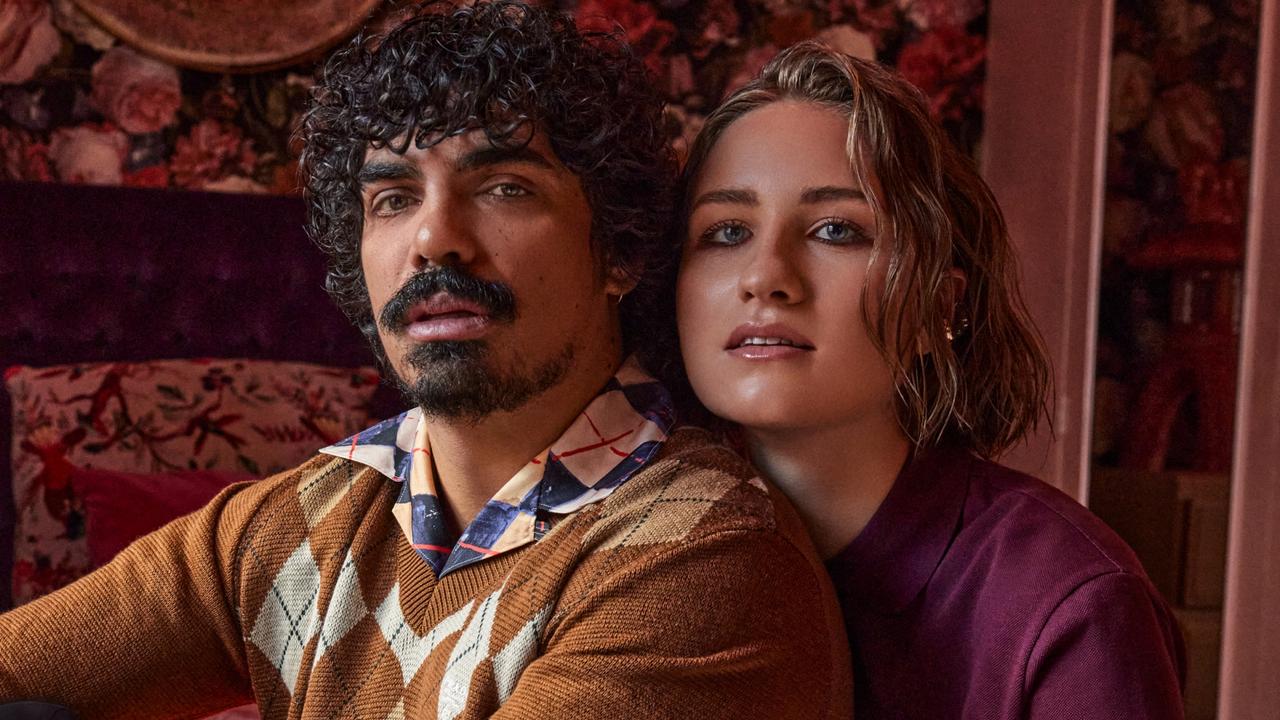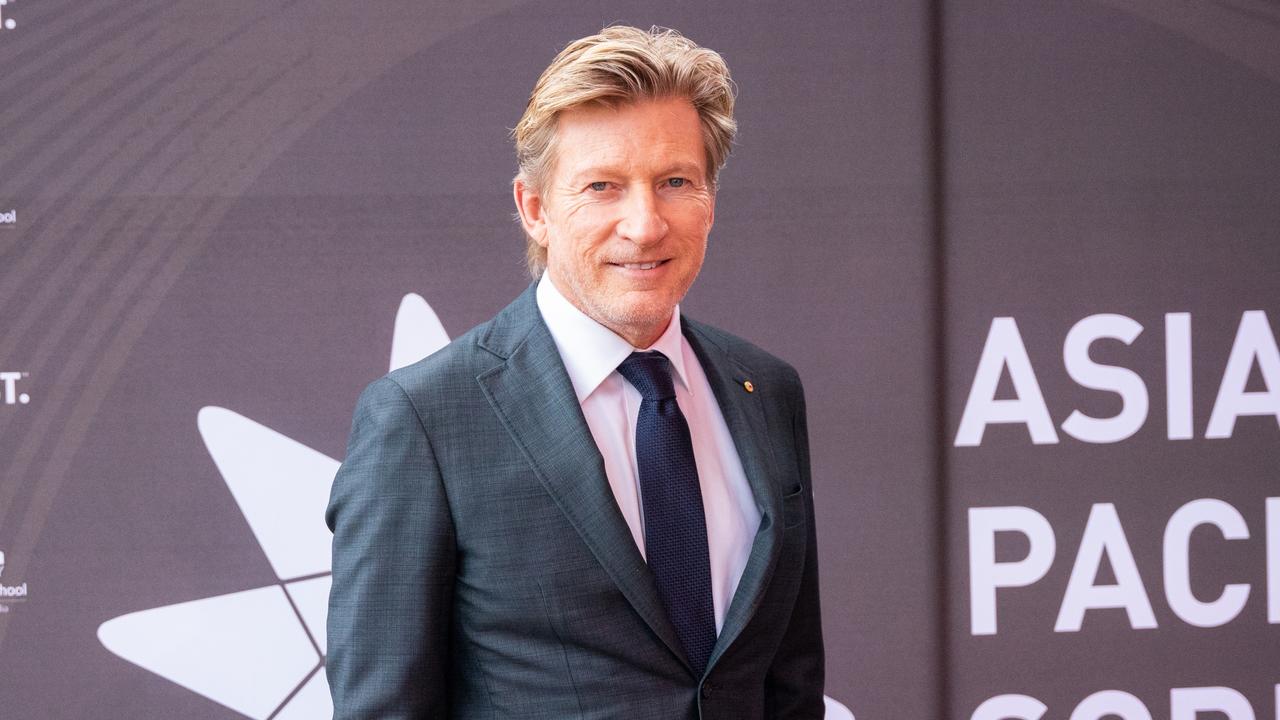‘I’m in the public eye and people ask questions’: Real reason former Olympic star Leisel Jones went public about her divorce
Former Olympic star Leisel Jones has opened up about body shaming, her post-swimming career - and why she chose to publicly reveal the end of her marriage.
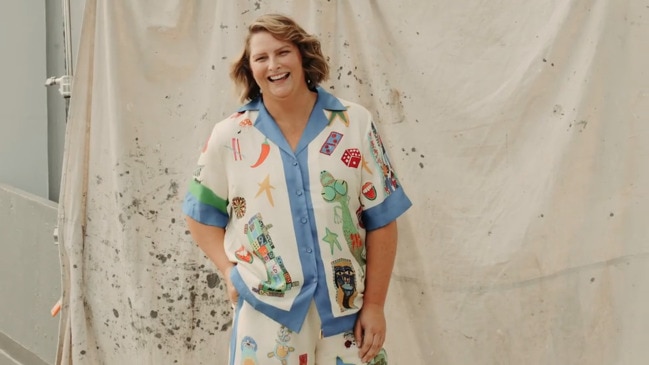
Stellar
Don't miss out on the headlines from Stellar. Followed categories will be added to My News.
With nine Olympic medals and 14 individual world records to her name, Leisel Jones is one of Australia’s greatest athletes of all time.
Yet pressure to perform on the world stage – and scrutiny and commentary surrounding both her body and behaviour – took a heavy toll.
Twelve years after hanging up her swimsuit, the 38-year-old radio host joins Stellar’s podcast Something To Talk About to discuss the public reprimand that still lives “rent-free” in her mind even after 20 years, the importance of telling the truth about her separation, and how she’s yet to discover her true self.
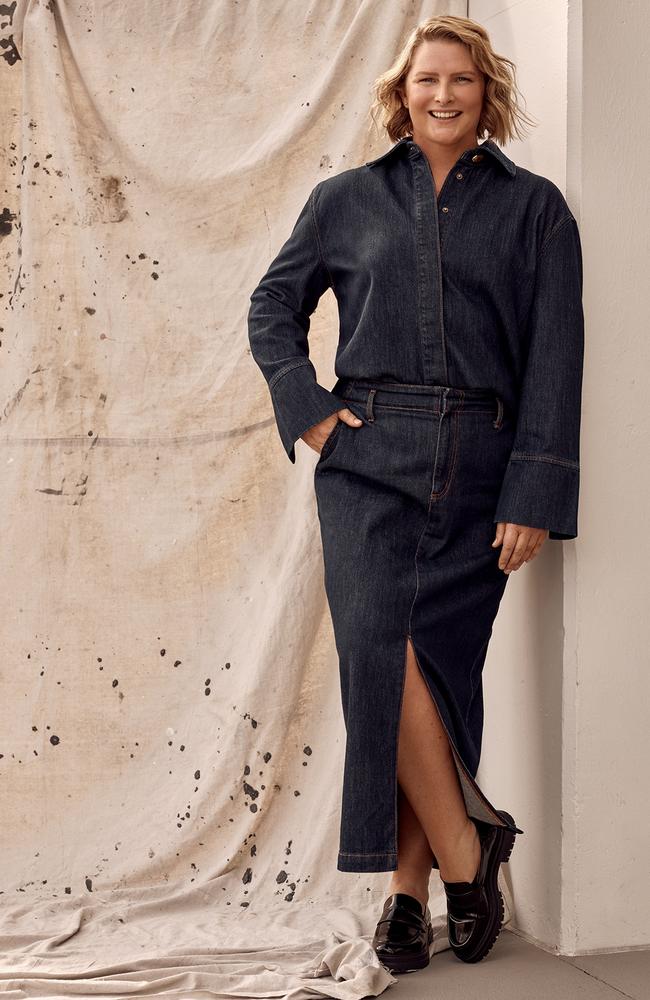
Stellar: You were 15, the youngest member of the swimming team, when you competed in the Sydney 2000 Olympics. What are your memories of the first time you stood by the pool with the eyes of the whole world on you?
Leisel Jones: I turned 15 in the camp. So I really was just a little girl, competing in front of a massive home crowd. The Games that we put on and the support we had were extraordinary. I think, to this day, it was the best Olympics ever put on, because the atmosphere was so wonderful. I remember standing in front of the crowd and I was so excited but so overwhelmed. I do wonder if I didn’t really process those emotions very well because it’s overwhelming as a little girl to be put in that situation where you’re competing for your country. Even in the medley relay – I was selected for that because I was the best performer in the 100m breaststroke – I still remember people like Susie O’Neill and Dyana Calub being in that team, and I felt immense pressure to perform and not let people down. We came second, but I remember feeling maybe it was me who’d let them down because I was inexperienced, or maybe my changeovers were a bit slow. Maybe it was my fault we won silver [not gold]. It’s a lot of emotions to process for a 15-year-old at her first Olympics.
Listen to Leisel Jones on the latest episode of Something To Talk About:
S: A lot can change in four years at that age. Was the 19-year-old you at the 2004 Olympics unrecognisable from the 15-year-old you?
L: Unrecognisable in a way, but still the same insecure, not very confident girl inside. Even though I was in a 19-year-old body, not feeling super confident in myself or really knowing who I was, I was still an afraid little girl. I hadn’t matured that much, and in terms of mental preparation for 2004, it was probably not the greatest preparation. I was still training with Ken Wood, who was a very old-school coach and believed that psychologists were for weak people. That we didn’t need to work with sports psychologists, because we’re tough and no-one is going to beat [us]. Everyone around the world was doing very similar training … I won the bronze medal in the 100m breaststroke, which was completely disappointing for someone like me because I had been told the entire time, almost brainwashed in a sense, that
I was better than everyone else and I was unbeatable. And it just wasn’t true.
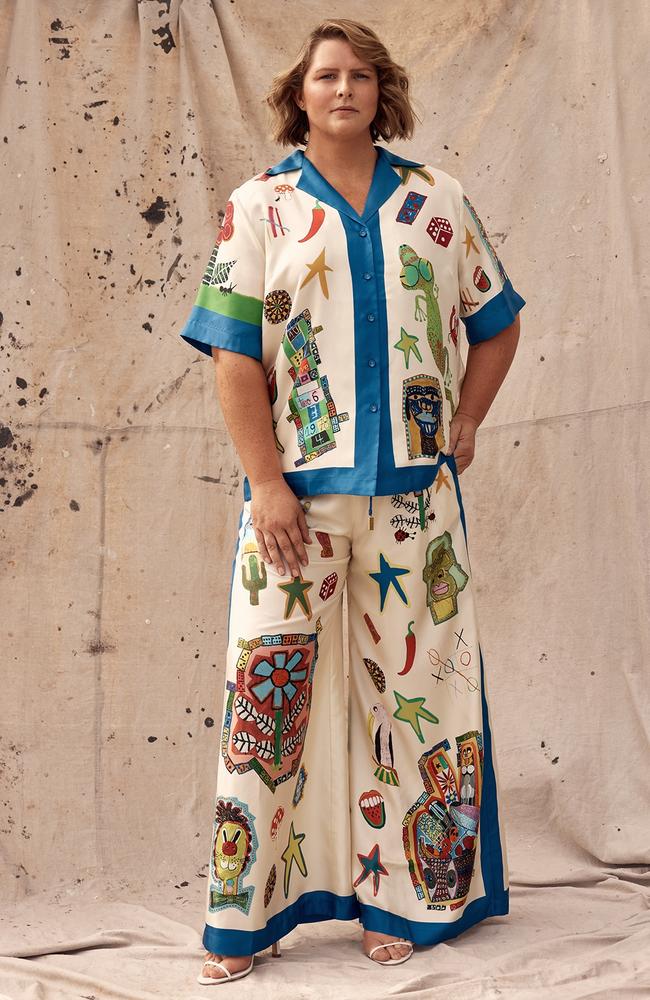
S: It was also at the 2004 Olympics when Dawn Fraser called you a “spoilt brat”. How did that rebuke affect you, and have you made peace with it?
L: It was so hurtful at the time and so shocking that I didn’t really process it. Even now, 20 years later, I feel like that’s part of my life and something I process to this day. I do jokingly say I’m still in therapy for it. But I am, because other people’s comments can be hurtful, especially when I didn’t have any kind of relationship with Dawn Fraser. I knew her from afar and as someone who had done things before me and was so successful in the sport, but had that naughty, larrikin side that as Australians we just adore. So to be so critical of me, when I didn’t know her personally, it was super hurtful. At that time I would have loved mentorship, or anything that was helpful, rather than comments made by someone who didn’t know me personally. Because it actually couldn’t be further from the truth, me being a spoilt brat. I was certainly not spoilt by any means. I worked extremely hard. We had no money growing up, we had our house repossessed, and so from the age of 12 I’ve worked extremely hard for everything. I put so much pressure on myself to perform, but I just didn’t have the confidence to win. So to add that layer of complexity, on top of criticism that’s external, on a girl who was already very insecure about herself, her performance, her sport and who she was, makes it so hard to process. It still lives in my head rent-free most of the time and is something I still carry with me today.
S: While performing at your final Olympics in 2012, there was criticism of your appearance. Have things gotten any better since then in terms of how we publicly judge women’s bodies?
L: For athletes it’s very different because at the time I was very much criticised for what my body looked like instead of what it was able to achieve. I’d made it to my fourth Olympic Games – there was a whole lot of backstory about my mental health 12 months prior. I’d been taking antidepressants which had made me put on weight – but I’d still earned my way onto the team. The comments that I was on holiday and having the time of my life were so untrue. And the problem with swimmers is you can see everything. You can see absolutely every lump and bump. I do think we have progressed a little bit, but body-shaming still exists … I do feel the comments have improved somewhat; people are saying, “Her body is none of your business.” Those comments would have been very different back in 2012 if it was on social media. It probably would have been more negative, whereas now people are saying someone’s weight is the least important thing about them.
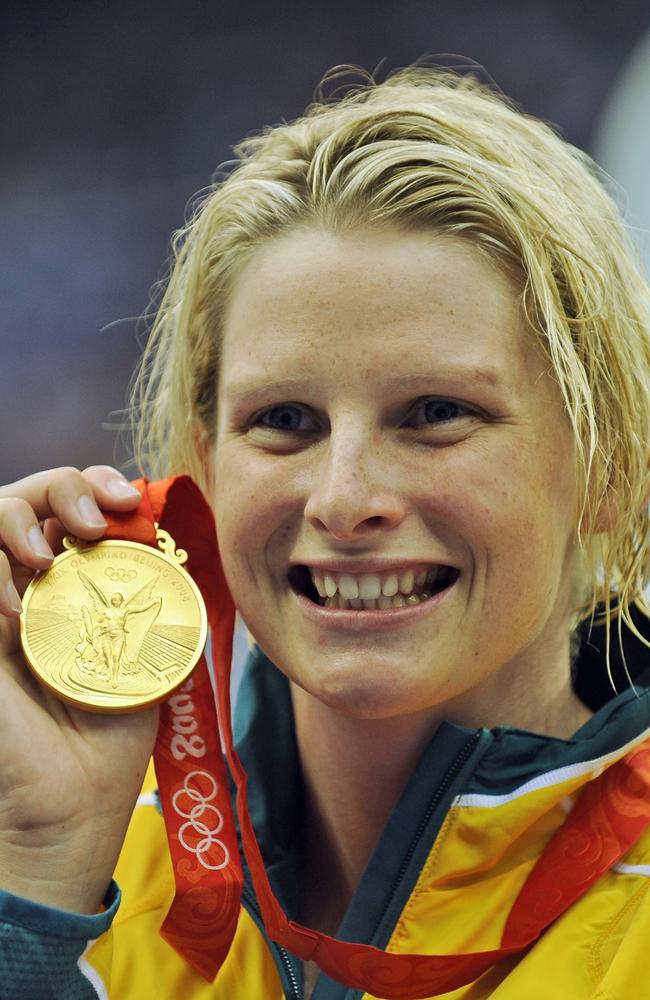
S: You revealed late last year on your radio show that you had separated from your husband, Damon Martin. Did you feel vulnerable after going public with that?
L: I made sure I asked Damo first, before revealing the news. This was a little bit of time down the track; we had healed a bit. I wasn’t going to share information that
he wasn’t comfortable with, and if he had said no then I would have respected that. But also, I didn’t want to be lying. It was going to come out sometime, and getting in front of it I was able to control the story and how I told it. It wasn’t a bitter divorce.
I’m very lucky Damo was supportive. I’m in the public eye and people ask questions and it meant then I could move forward, that I could be open and honest about dating journeys. Imagine if someone saw that I was on Bumble and they were like, “Hang on, aren’t you married?”
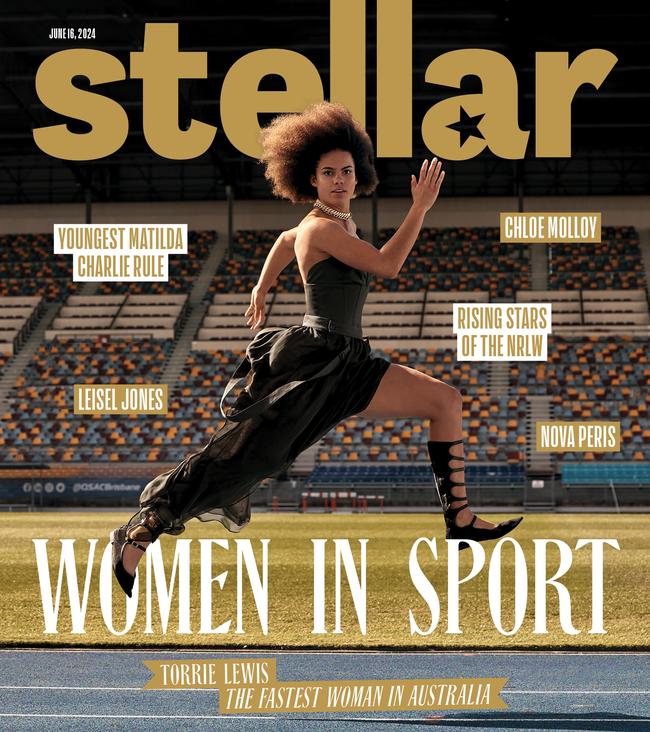
S: You’ve admitted to struggling to find your identity outside of the pool since retiring from competitive swimming in 2012. When did you start to feel you’d found a post-swim identity?
L: I don’t think I have, really. I don’t know that even to this day, 12 years since I retired, that I know who I am as a person. There’s still so much to process. I love my job at Triple M [Jones co-hosts The Rush Hour with Liam Flanagan and Ben Dobbin]. I feel like I fit in and I get to do things that really are so much fun … But a lot of the time between the ages of probably 12 and 27, when I retired, I had no identity other than swimming. That was all I was. It was all about winning and nothing about who I was as a person. I don’t think I was really the genuine version of myself. I was very fake. I was trying to be liked by everyone, and I do deeply regret that I didn’t get the opportunity to be myself throughout that time because I just didn’t really develop as a person. It’s a long journey. It probably takes your whole life to be able to learn who you truly are.
The Rush Hour with Leisel Jones, Liam & Dobbo is on weekdays 4pm-6pm on Triple M Brisbane and Gold Coast. Listen to the full episode of Leisel Jones on Something To Talk About below, and see her full shoot inside Stellar here.
Originally published as ‘I’m in the public eye and people ask questions’: Real reason former Olympic star Leisel Jones went public about her divorce

